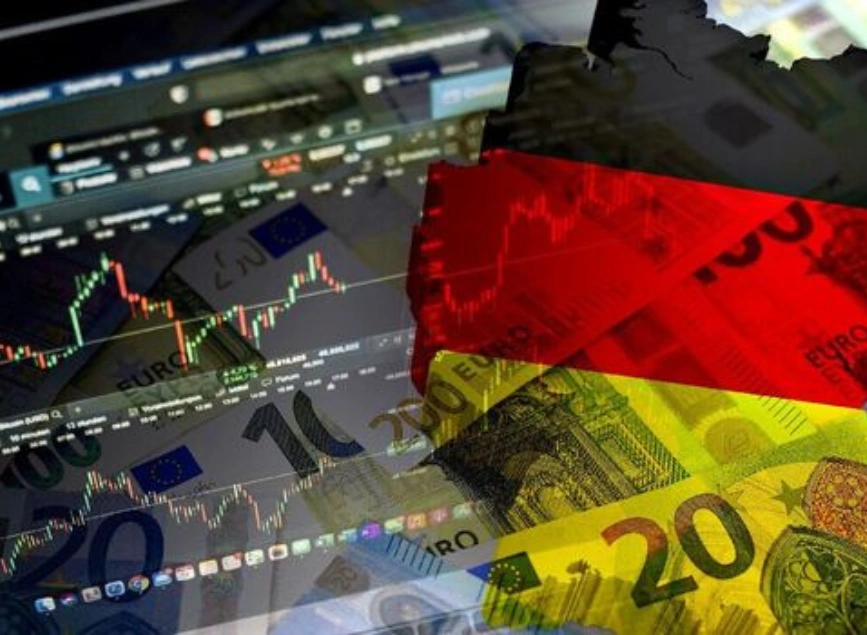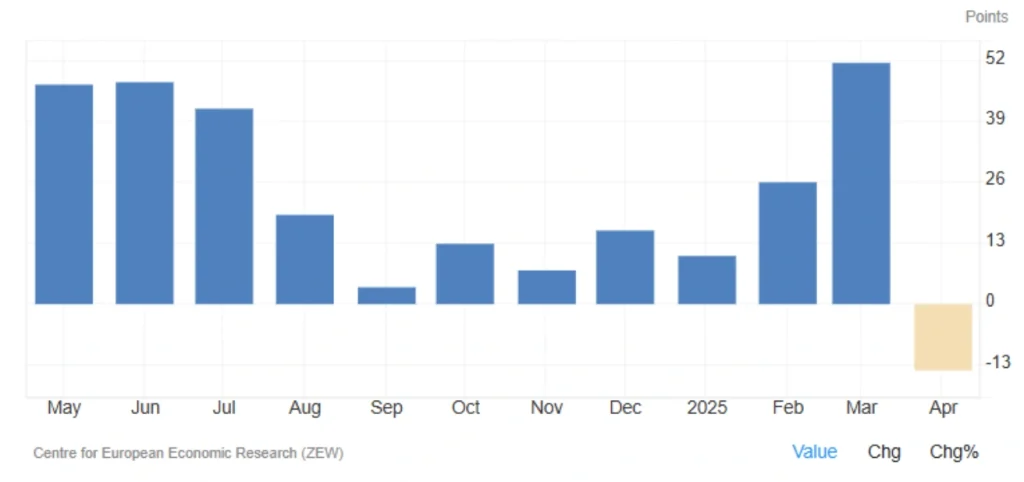
Global Trade War Fears Shake Europe: Germany’s ZEW Index Plummets in April 2025
April 2025 brought a harsh wake-up call to Europe’s economic outlook as Germany’s ZEW economic sentiment index saw its sharpest monthly decline since the onset of the Ukraine war in 2022. The index, which measures investor and analyst expectations for the next six months, plunged from 51.6 in March to -14 — a staggering drop far below market forecasts of 9.5.
What’s Behind the Crash?
The dramatic fall in the ZEW index can largely be attributed to two key factors:
🔻 A Surge in Global Uncertainty
The reintroduction of aggressive trade policies by the U.S. under President Donald Trump — particularly “reciprocity tariffs” aimed at leveling trade imbalances — has injected a new wave of unpredictability into global commerce. Continuous policy shifts and the lack of a clear direction have intensified anxiety among European investors and exporters.
🔻 A Blow to Export-Oriented Industries
According to Professor Achim Wambach, head of the ZEW Institute, the sectors that had recently begun recovering — including automotive, chemicals, machinery, steel, and metals — are now again under heavy strain. These industries, heavily dependent on international demand, are directly exposed to the fallout from trade tensions.

A Sliver of Positivity: Slight Improvement in Current Conditions
While forward-looking expectations took a hit, the index’s assessment of current economic conditions showed a modest improvement — rising from -87.6 to -81.2. Though still in negative territory, this suggests a mild short-term stabilization.
What is the ZEW Index?
The ZEW (Zentrum für Europäische Wirtschaftsforschung) index is a forward-looking indicator based on a survey of institutional investors and analysts. It’s composed of two main components:
- Economic Expectations: A six-month forecast
- Current Conditions: A snapshot of the present economic climate
A steep decline in the expectations component is often viewed as a signal of waning investor confidence and a possible recession risk.
Read More: Trump’s Tariffs: Growing Concerns Among Republicans
Broader Impact on Germany and Europe
🔹 Economic Repercussions
- A decline in confidence could slow down investment in key industrial sectors.
- European policymakers may come under pressure to reduce reliance on U.S. markets and provide targeted support for vulnerable export-heavy industries.
🔹 Market Reactions
- The euro may weaken against safe-haven currencies like the U.S. dollar or Swiss franc.
- German stock indices, particularly in automotive and manufacturing, could face selling pressure as market sentiment sours.
Conclusion
The April collapse of Germany’s ZEW economic sentiment index is a stark warning of the psychological and practical toll a global trade war can exact. Rebuilding investor confidence will require more than time — it will demand coherent international trade policy and strategic support for Europe’s export backbone.
Share
Hot topics

Best broker for gold trading
There’s always been a certain magic about gold. Before online charts and trading applications, people stored their wealth in coins and bars, trusting that gold would retain its value during...
Read more




Submit comment
Your email address will not be published. Required fields are marked *